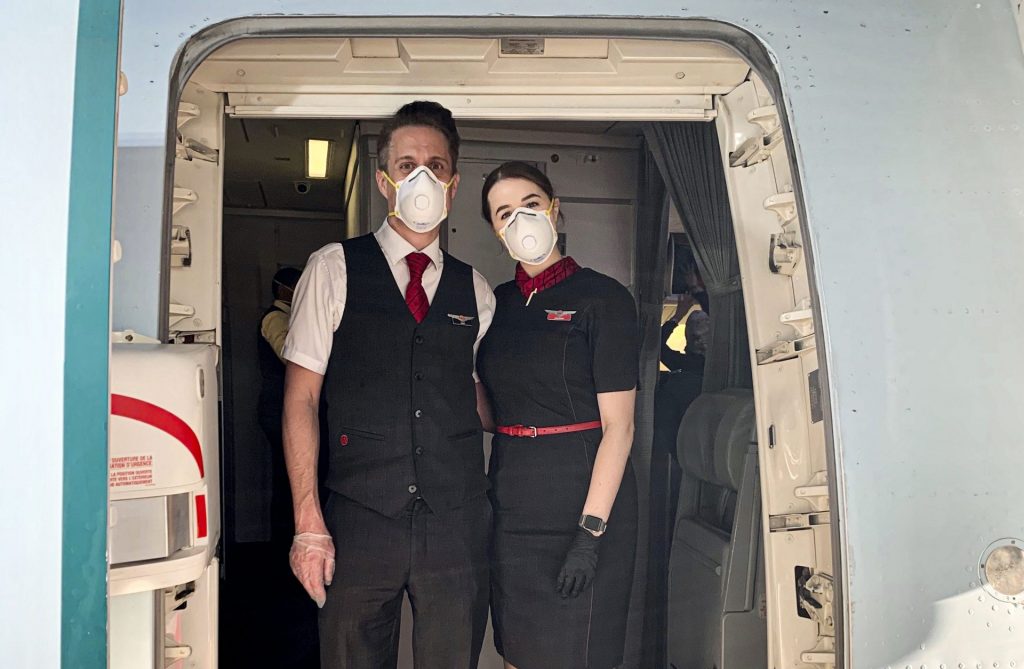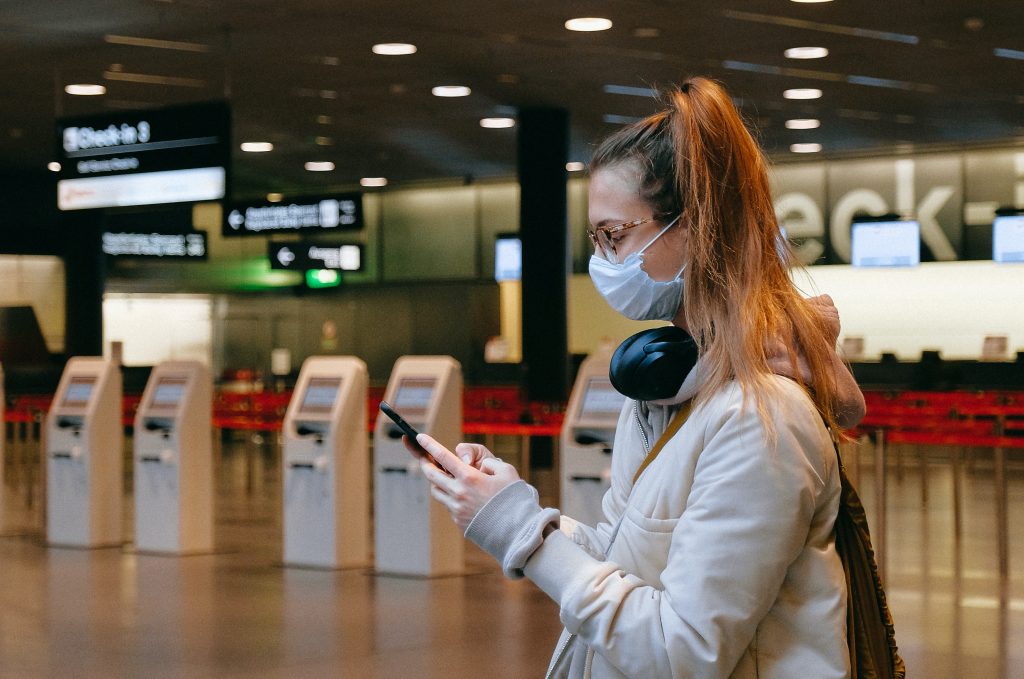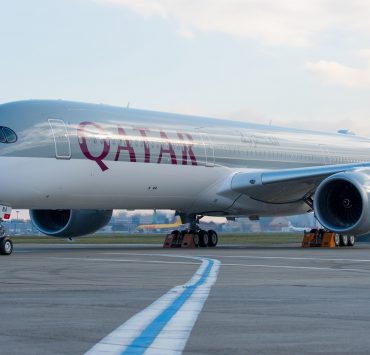
An aviation trade body that represents the vast majority of airlines around the world has called on the mandatory wearing of face masks and coverings for both crew and passengers as a temporary “biosecurity” measure in light of the threat posed by the COVID-19 virus. The International Air Transport Association (IATA) has recommended a “layered approach” to biosecurity measures but has rejected the idea of onboard social distancing which typically involves blocking the middle seat.
While some airlines have embraced onboard social distancing or promised to block middle seats on flights with a light passenger load, other carriers have claimed such a move would lead to heavy financial losses and make their entire business model unviable. Lufthansa has already shelved plans to block the middle seat in favour of making the wearing of face masks mandatory.

“The aviation industry is working with governments to re-start flying when this can be done safely. Evidence suggests that the risk of transmission onboard aircraft is low. And we will take measures—such as the wearing of face coverings by passengers and masks by crew—to add extra layers of protection,” explained IATA Director General Alexandre de Juniac.
“We must arrive at a solution that gives passengers the confidence to fly and keeps the cost of flying affordable. One without the other will have no lasting benefit,” he continued.
In a statement, the trade body claimed the risk of catching COVID-19 on a plane remains small even without additional special biosecurity measures. In one case, involving passenger with visible symptoms of COVID-19 on a flight from China to Canada, contact tracers didn’t find any evidence of onboard transmission.
And in another case involving 12 symptomatic sufferers on a flight from China to the United States, contact tracers again didn’t find anyone else on the plane who had contracted the potentially deadly virus. Both cases occurred before passengers routinely started to wear masks or other measures were put in place.
“A more detailed IATA examination of contact tracing of 1,100 passengers who were confirmed for COVID-19 after air travel revealed no secondary transmission among the more than 100,000 passengers in the same group of flight. Just two possible cases were found amongst crew members.”
But between January and March, a survey of 18 major international airlines found that three crew members had been infected during a flight – most likely from one of the passengers.
“The cabin environment naturally makes transmission of viruses difficult for a variety of reasons. That helps explain why we have seen little evidence of onboard transmission. In the immediate term, our aim is to make the cabin environment even safer with effective measures so that passengers and crew can return to travel with confidence,” Juniac continued.
In the short term, IATA is recommending several measures to make air travel safer and increase passenger confidence:
- Thermal screening or passengers and crew
- Socially distanced boarding an deplaning procedures
- Limiting passenger movement in-flight
- Enhancing cabin cleaning
- Reducing onboard catering
Many of these measures have already been implemented by an increasing number of airlines or governments. IATA will now hope to make its recommendations a common set of measures which are adopted around the world.

In the future, IATA is also advocating the widespread use of mass rapid COVID-19 tests once they are “available at scale”. Vienna International Airport made headlines around the world by offering COVID-19 tests to passengers but each test costs €190.
IATA would also like to see so-called ‘immunity passports’ become widespread – the World Health Organisation (WHO) has cautioned against the use of immunity passports because there is no evidence to prove that someone who has had Coronavirus is immune from becoming infected a second time.
“Airlines are fighting for their survival,” Juniac warned. Eliminating the middle seat will raise costs. If that can be offset that with higher fares, the era of affordable travel will come to an end.”
United Airlines became the first major U.S. airline to make the wearing of face masks by crew mandatory. Those rules have now been expanded to include passengers and are similar to policies introduced at American Airlines, Delta, jetBlue and others. Similar rules are also in effect at a growing list of European airlines including Air France, KLM and Alitalia.
Irish flag carrier, Aer Lingus says it is urgently reviewing its guidance after images of a packed aircraft cabin with no one wearing face masks went viral in the last couple of days.
Mateusz Maszczynski honed his skills as an international flight attendant at the most prominent airline in the Middle East and has been flying throughout the COVID-19 pandemic for a well-known European airline. Matt is passionate about the aviation industry and has become an expert in passenger experience and human-centric stories. Always keeping an ear close to the ground, Matt's industry insights, analysis and news coverage is frequently relied upon by some of the biggest names in journalism.









